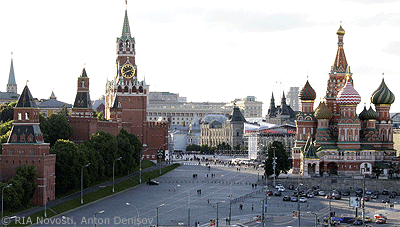Valdai Index reveals growing stagnation trend in Russia

Subject: News Release: Valdai Index 2010-2011
Date: Wed, 2 Nov 2011
From: rianovosti@rian.ru
News Release
Moscow, November 02, 2011
Valdai Index reveals growing stagnation trend in Russia
Worsening stagnation is the prevailing trend in Russia, according to a survey conducted among international experts on Russia in early September, as part of the Valdai Club's annual project Russia's Development Index, or Valdai Index. "Judging by the results of a similar survey in 2009-2010, [it] manifested itself most of all in the sluggishness of the country's economic and scientific research development, as well as the development of its culture", the Valdai Club says in a report.
"While last year we did not observe any fluctuations in Russia's development in the economic, scientific and cultural spheres, this year we are witnessing a similar thing in Russian politics," says Pavel Andreev, executive director of the Valdai Club Foundation.
He notes, that the survey of experts participating in Valdai International Discussion Club conferences was conducted before the announcement that Vladimir Putin would run for presidency in 2012, not Dmitry Medvedev.
According to Andreev, experts tend to attribute Russia's current period of political stagnation, which began last year, to the forthcoming parliamentary and presidential polls. "There isn't much activity on the Russian political scene at the moment," he said, citing a comment by one of the respondents. "But the situation may change during the coming election campaign and with the election of a new president."
Considering the report, Russia's economic development index has remained flat, on the same level as last year. A number of respondents pointed out that "the business climate has slightly deteriorated," and that "investors and business leaders have not seen any significant improvements," while "many opportunities to improve the economic situation were missed due to a lack of investment, corruption and erroneous decisions." The analysts voice concerns about this stagnation trend. "Treading water is not a good option. When important reforms are not implemented, this harms the investment climate."
Experts note positive signs along with the negative trends, including the government's growing attention toward innovative industries, changes in labor legislation aimed at attracting highly-qualified foreign professionals, and greater openness to foreign companies on the part of Russia's innovation and energy sectors.
Some analysts also said that although the global financial crisis has certainly affected Russia's economy, it fell exclusively within the framework of global trends.
Valdai experts believe that one of the key national development priorities will be to create a strong and responsible civil society.
According to the survey results, foreign policy was where Russia had the most success in the past year.
"Russia has been formulating its stance on major international issues more clearly and has been conveying this to the international community more successfully," the report reads. Moscow is finally demonstrating a balanced approach in its foreign policy." However to affirm its status as a global leader, Russia must improve its defense capabilities and intensify its foreign policy.
Experts interviewed for the survey believe that after the elections, Russia will have quite a few challenges to cope with, such as consolidating political institutions, raising public confidence in government, minimizing corruption and brain drain, enhancing the country's appeal to foreign investors, and reorienting its economy from commodities to hi-tech industries.
The Valdai Index represents the combined opinion of leading world experts that participated in Valdai Club conferences with respect to Russia's development in the political, economic, social, cultural and international spheres. The first Valdai Index survey was conducted at the seventh annual conference of the Valdai International Discussion Club in 2010.
For the 2010-2011 survey, the focus group included over 200 participants of Valdai Club conferences from 12 countries Britain, Germany, Hungary, China, Spain, Italy, Norway, Russia, USA, France, Switzerland and Japan. Nine out of 10 respondents are foreign experts.
The survey results are expected to give added stimulus to the discussions at the forthcoming VIII Annual Meeting of the Valdai Discussion Club, to be held November 7-11 in Kaluga and Moscow. The topic of this year's conference is the country's development scenarios after the 2011-2012 elections.
The full text of the Russia Development Index report is available online at www.valdaiclub.com.

